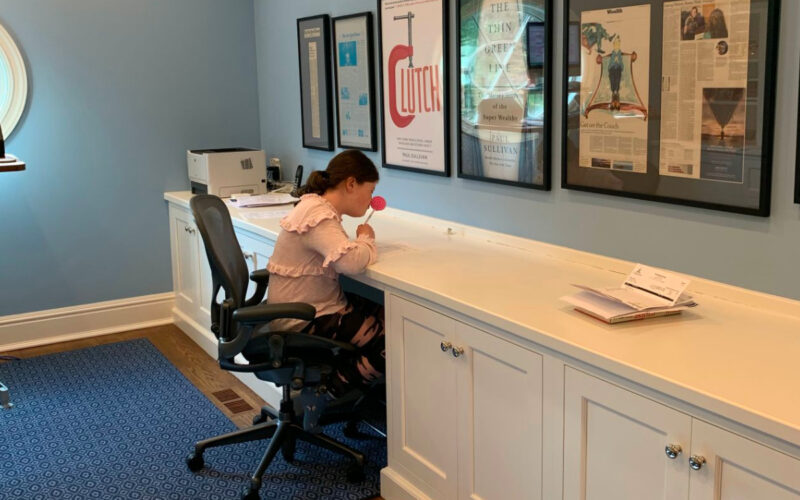Daylight savings, with the annual clock changing routine (unless you live in Arizona!), has stirred debate as to why we still do this. We’re no longer an agrarian society. We’re service workers and knowledge workers and drivers and technicians – all jobs that don’t benefit from being groggy!
We’re also caregivers with kids who don’t always go to bed early on the Sunday of daylight savings or wake up chipper and ready to learn come Monday!
What if we reimagined the 8-hour workday?
What I propose is a Care Shift.
Here’s a sample day: 6:30am to 7:30am. 9:30am to 3:30pm. 8pm to 9pm.
It’s still an 8-hour day but just divided up for working parents, with gaps around getting kids off to school and being there when they come home, unwind, eat dinner and go to bed. The final hour would be spent mostly wrapping up the day.
You could have a different Care Shift for people caring for a partner or an elderly parent.
It’s not as crazy as it might sound. And it’s not hard to do. I know one company that is quietly doing something similar to a Care Shift.
Coming out of the pandemic, Dimensional Fund Advisors, founded by David Booth, told workers they could start or end their day whenever they liked as long as they were available between 10am and 3pm. That’s a Care Shift.
For those who don’t know DFA, it’s an investment management firm that has been wildly successful. (The University of Chicago Booth School of Business business school is named for him.) And it’s certainly not a company that I would think of as anything other than focused on performing at the highest level.
It just realized that people were working differently. And instead of trying to force them back into the 2019 box, like other financial services companies are attempting to do, DFA is acknowledging and leaning into the change.
Most of its employees are in Austin, Charlotte and Santa Monica – three time zones – but it is investing around the world.
It’s not like people didn’t have to work outside of the traditional workday hours before. Now they can be more intentional with a Care Shift.
To be clear: I’m not calling for people to work less. Companies require a certain amount of productivity and workers need time to get things done. I’m calling on companies to allow people to work more honestly and consider Care Days – just as manufacturing companies and hospitals operate in shifts.
What would anyone have to lose? So much research points to people being more productive and happier at work when they can focus intensely for a period of time – and stop pretending to be multitaskers.
A few jobs might not work with a Care Shift – traders tied to a particular market’s open and close. But the majority of jobs in America could be adapted just fine.
What do you think it would take companies to adopt this? The upsides are many and the downsides are pretty manageable.









